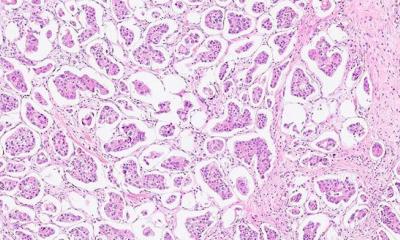Integration is key to tackling infectious diseases
World-renowned experts discussed the situation of predomonant epidemics at the International Roche Infectious Disease Symposium in Barcelona.

Defeating the Ebola epidemic in West Africa requires an integrated healthcare system, with a robust infrastructure, adequate screening and isolation facilities, and well-trained healthcare staff prepared to care for patients. Identifying cases, quickly isolating them and tracing their contacts are the most effective measures to control the disease. This was the assertion of a panel of world-renowned medical experts, who convened at the 5th International Roche Infectious Diseases Symposium (IRIDS), a meeting of over 400 laboratory and clinical infectious disease specialists held in Istanbul. Lack of integration, the panel added, is a significant problem in affected countries.
In many African regions, access to diagnostic technology is poor, and healthcare infrastructure is collapsed. Basic measures to manage and prevent Ebola – such as hydration, maintaining blood pressure and administering oxygen – are scarce, yet these could save half the patients infected with Ebola. Longer term, the panel said, other treatment approaches would be necessary, and convalescent serum is the most-accepted future treatment. Still, they agreed that identifying appropriate donor candidates would be problematic.
The panel discussed how the international clinical community and governments can respond to this significant threat. Both panel and audience felt that government-imposed lock-downs would be effective in controlling Ebola only if they were of sufficient duration. Moreover, they questioned whether such a strategy could prove counterproductive in gaining and maintaining the trust of the local people, which is critical in the face of such a devastating epidemic.
Integrating responses to optimize outcomes
The themes of integrated screening, diagnosis and management to optimise response to infectious diseases also underpinned a session on TORCH infections (Toxoplasmosis, Other [syphilis, varicella-zoster, parvovirus B19], Rubella, Cytomegalovirus (CMV), and Herpes infections) on the symposium’s first day. Accessible screening and treatment are the keys to controlling these devastating, preventable diseases. New point-of-care tests can make screening more accessible and cost-effective, even in areas of low prevalence.
The audience then learned that Herpes simplex virus (HSV) is the most prevalent sexually transmitted infection in the USA, even though 80% of those with HSV-2 do not know that they are infected. Identification of HSV can reduce transmission, prevent misdiagnosis of other conditions and reduce neonatal risks.
Then came a great example of how an integrated, collaborative, global response to screening, diagnosis, treatment and monitoring can transform a life-threatening infection into a manageable disease. HIV has, since the millennium, created one-third fewer new infections. And there has been a 40-fold increase in people receiving antiretroviral therapy. This has cut AIDS-related deaths by 29%, and a cure now seems possible. However, there is still much to achieve to control HIV, especially in sub-Saharan, Africa and there are still 35.3 million people living with HIV.
As for hepatitis, a cure may be within reach for the most with the ailment. Diagnostic tools will remain central in managing hepatitis, identifying HCV genotypes and patients who are unlikely to respond or are super-responders, to direct the type and duration of therapy.
Press Release: Roche Diagnostics International Ltd
14.10.2014











